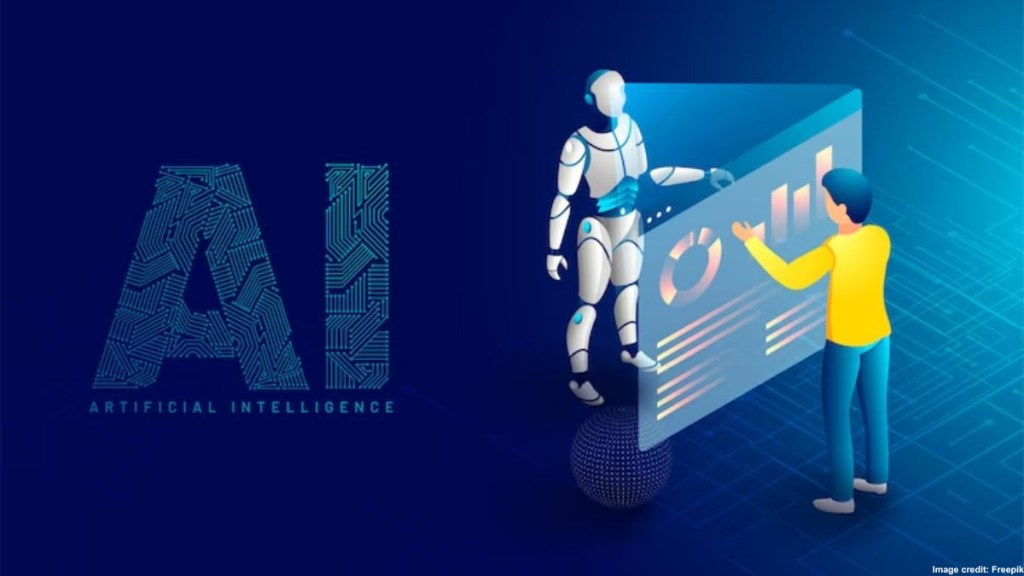By Vipin Vindal
India is on its way to fulfilling the targets of the UN’s SDG (Sustainable Development Goal) 4, which is “Quality Education”. It is taking several initiatives that are progressing and making education accessible to everyone in the country. The government’s push to use technology has also played a crucial role in catering to the educational needs of students. The pandemic, being a catalyst for online education, has spurred the adoption of more cutting-edge technology for teaching and learning. Artificial intelligence in particular, which is already a hot topic today, is anticipated to transform the educational landscape in numerous ways.
Thanks to the increased accessibility of smart devices, internet and web-based education, AI is likely to become the norm in the sector. The use cases of artificial intelligence in education can further help in a variety of ways to aid students in learning and also teachers in implementing the best pedagogical practices.
Artificial Intelligence: Transforming Education in India
The supply-demand gap of qualified teachers is one of the biggest challenges we face in educational sector. If we are to comprehend the key opportunities related to AI, we must find apt solutions related to this key area. The Indian Ministry of Education and NITI AYOG has already emphasized the significance of AI in the field of education and has pushed for the creation and introduction of new AI courses in higher education to equip students with the skills they will need to compete in both the current and future job markets.
However, the human teacher will be irreplaceable in primary education and elementary schools. Critical thinking, problem-solving, teamwork, and communication are examples of soft skills and transferable skills that require interaction with others. However, in order to work with younger as well as matured students, teachers can be given AI-based teaching assistants and helpers.
AI as a teaching assistant
By automating tedious tasks and serving as a teacher’s assistant, artificial intelligence (AI) has the potential to significantly improve the teaching experience for both teachers and students. By automating the grading process, AI can free up teachers’ valuable time for other crucial tasks. It can be taught to grade homework, exams, and essays and give students immediate feedback. Furthermore, by examining students’ learning preferences and styles, AI can also offer them personalised learning experiences. This can assist teachers in determining potential areas of student difficulty so they can modify their instruction accordingly. In addition, AI can also help instructors find reliable data and produce engaging course materials like quizzes, presentations, and lesson plans. As a result, teachers are likely to focus on more students at once, which improves their efficiency.
Enhanced capabilities of LMS
For the management of all online activities at a school, a learning management system (LMS) offers a centrally organised, user-friendly system. Although these tools can be used for a wide range of tasks, they are frequently used to assign coursework, communicate with students and parents, monitor student progress, and produce performance reports.
These LMS with AI software allow for the learning of a wide range of subjects. An AI-powered intelligent digital tutor can assist a learner by giving them the solution to their problem as well as assistance with their problems. Artificial intelligence can even be used to create learning management systems that analyse student thought processes and improve student learning. Furthermore, the LMS systems can assist parents in keeping track of their child’s development within the programme and evaluating them using an AI engine. Teachers and parents will thus benefit from this by having a better understanding of the child’s progress.
Fairer examinations
Artificial intelligence makes online exams more secure than offline ones because it gives teachers access to a variety of configurations and settings for creating test questions. This reduces the probability of cheating and makes the administration of the test less stressful.
Because of this, the system can be used to administer tests without the hassle and danger of visiting a testing facility. With remote proctoring powered by AI, online exams for distant users can be safely administered. For better results, integration of AI and human proctors can be used in the AI-proctored exam. The AI can detect any suspicious movement or activity because a webcam is used to record video of the student taking the test. Therefore, AI solutions can offer a cost-effective and scalable security solution to guarantee the integrity of online test system assessments, which is beneficial for educational institutions.
AI is here to stay
According to the reports, the AI market in India will reach USD 7.8 billion by 2025. Because of this, technology is poised to completely redesign and reinvent the educational industry. The future of education and the entire concept of learning will be shaped by the expertise of teachers and the best of AI technology. Teachers will be able to learn more about their students and abandon outdated, traditional teaching and learning methods thanks to AI.
The Indian educational system has already started to rely on AI technology, and the technology is here to stay. In a survey of students by Analytics Insights, more than 63.4% of participants agreed that AI is already changing how Indian students learn and study. Therefore, as technology develops, the educational sector will have more opportunities and use cases for AI development.
The author is CEO, Quarks Technosoft

